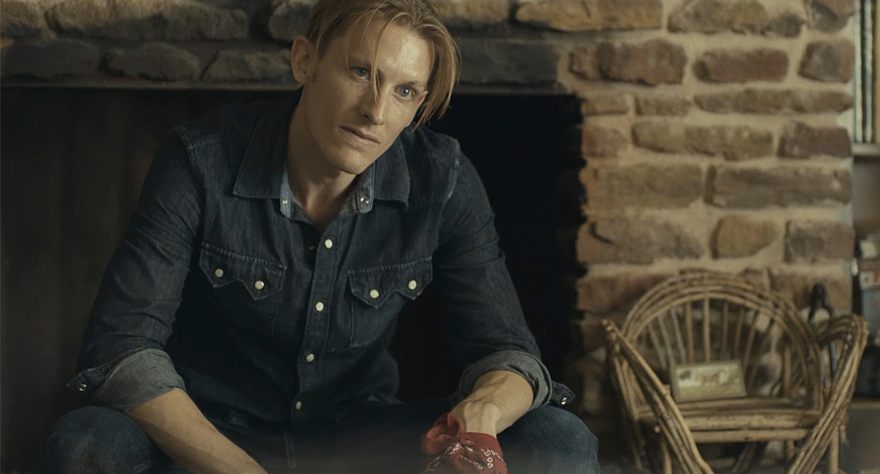
This intense Texas thriller, with its core theme rooted deeply in desperation, is slow to burn, but impossible to look away from once it catches fire.


This intense Texas thriller, with its core theme rooted deeply in desperation, is slow to burn, but impossible to look away from once it catches fire.

Watch enough independent films and it becomes hard to avoid looking for “the next one”—the film that, on the surface, might look like any another genre entry in a long list of low-budget genre entries, but manages to rocket above the rest with something else, something special. Some titles have already done it in 2015, like Appropriate Behavior (romantic comedy), Kumiko, the Treasure Hunter (drama), and Spring (horror). It’s time to add a thriller to the top shelf of indie standouts: Alex R. Johnson‘s transfixing slow-burner, Two Step.
James (Skyy Moore) is a kid with a rough life behind him and nothing all that promising ahead. Already orphaned (his parents died) and recently kicked out of college, the young man pays a visit to his grandmother, only to meet more tragedy: she is in mid-stroke when he arrives, after which she soon passes. Even with his late grandma’s house and a pretty decent inheritance to his name, James is young man with nothing to lose. The only person in his life is his grandma’s middle-aged neighbor, Dot (Beth Broderick).
Webb (James Landry Hébert) is a felon doing time when, via some little phone-scamming techniques from inside, he tricks an old man into believing he is his grandson and needs to send money to bail him out. Once out, Webb shows up at his girlfriend Amy’s (Ashley Spillers) house. He wants to see her, but he also wants his half of the take from a previous job. Amy wants no part of Webb and flees her own home the first chance she gets.
Desperate for his money, a lot of which he owes to shady liquor store owner Duane (Jason Douglas), Webb decides to scam a previous mark: James’ grandma. When she doesn’t answer or return his calls, he shows up at her house only to find James there. Surprise quickly turns violent and in minutes, James finds himself Webb’s captive. The situation only grows more desperate and more violent from there.
Two Step is not only “the next one,” it’s something else entirely. Writer/director Johnson is an incredibly disciplined storyteller and filmmaker. As the latter, he deconstructs the thriller genre and rebuilds it with a rich genuineness of events, surrounded by intricate layers of character and relationship development that a viewer usually doesn’t find in a home invasion film.
That genuineness is found mostly in what Johnson doesn’t do. He shows great restraint with events, actions, and characters (and their relationships), constantly avoiding what is so often the expected path in films like this, while at the same time maintaining every ounce of believability in every action, reaction, outcome, and ripple effect. The challenge for me is that to offer an example of any of these decisions would be giving a micro-spoiler—not of the entire film, of course, but of these special moments that consistently and refreshingly surprise.
Johnson also constructs clever parallels between the pair of trios led by James and Webb. Over the course of their respective lives, James has been a victim and Webb a victimizer (most especially in the moment their lives converge). The women in their lives are opposites as well. Webb’s Amy is young and troubled and wants nothing to do with him. James’ Dot is mature, wise, and—no matter the newness of their friendship—only wants to help James. Finally, James and Webb each have something of a patriarch in their lives. For Webb, it’s Duane, shady and full of nothing but cynicism. For James that duty falls on his grandma’s attorney Ray (Brady Coleman), an upholder, not a breaker, of the law. There are even peripheral masculine figures in the opposite camps—hired muscle (Johnny Snyder) for Duane and a cop with a crush on Dot (Barry Tubb).
These supporting characters may travel along this parallel road with James and Webb, but it’s them doing the traveling along a road potholed with desperation. For James, it’s born out of stupidity—his criminal actions, his violent ways, his poor decisions. For James, it’s born out of helplessness—his parents dead, his grandma dead, himself a captive in his own home.
Ultimately, Johnson’s brilliance comes from writing a smart story within the framework of his chosen genre, not letting the genre—and the tired entries that came before—dictate how his story should proceed or how his characters should develop.
As a director, Johnson is just as good as he is a storyteller, if not better. Despite the story’s start (the first act is more slow than deliberate), there is real technical excellence in Johnson’s direction. It’s an incredibly crafted film. Every shot is effective, efficient, impactful, and captivating. Every shot is also a visual joy thanks to cinematographer Andrew Lillen, whose lensing is gorgeous, particularly what he does with natural sunlight. Rounding out this technical excellence is the acting, and almost everyone in this cast of character actors, newcomers, and unknowns delivers big, led by Hébert, who dazzles as he wields his reckless power over the helpless Moore.
A lot of movies can grab you by the lapels and give you a good shake to get your attention. Two Step isn’t that obvious. Instead, after staring you down, the film slowly glides around you, grips you tightly by the back of your neck, and demands your attention.